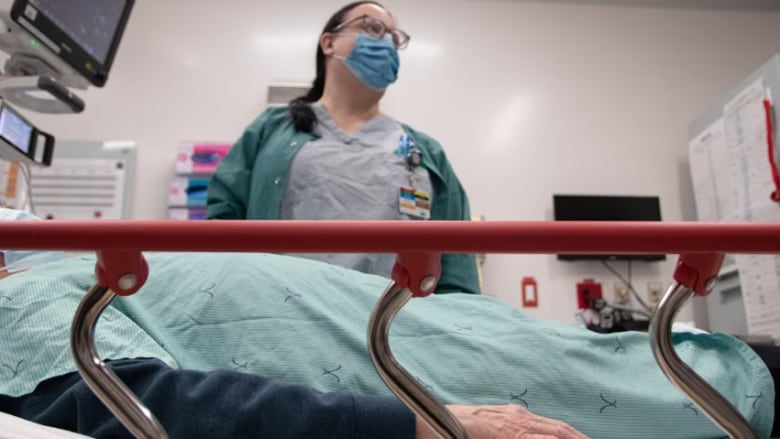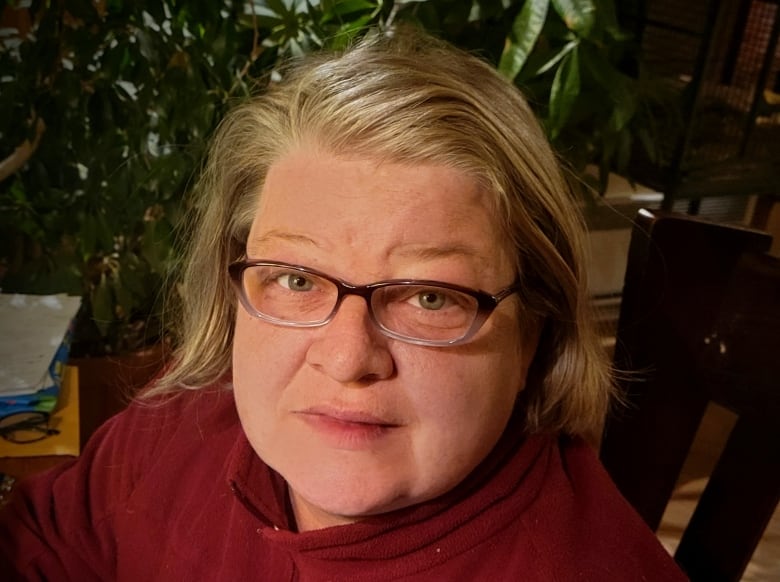COVID-19 experts warn of risks of summer surge as N.B. hazard index leads country
1 in 42 New Brunswickers currently infected, says infectious disease researcher

Two infectious disease experts are warning New Brunswickers about the risks ofCOVID-19 heading into the summer, when they say many people mistakenly believe infections decrease.
New Brunswick has the highest COVID-19 risk index in the country right now more than double the national average, according to Tara Moriarty,an infectious disease researcher and lead of COVID-19 Resources Canada, which produces a weekly forecast.
The province is listed as "severe" for June 22 to July 5, with a score of 28.2, based oncurrent infections and spread, health-care systemimpactand mortality. Canada's overall rate is 13.6.
No breakdowns by province are currently available, but Moriarty saidan estimated one in 42 New Brunswickersare currently infected"and could be infecting other people."
That meanstherearebetween 10,000 and 21,000 infections in New Brunswick per week,said Moriarty, an associate professor atthe University of Toronto.
"So it's important for [people] to keep that in mind when they're planning activities and deciding whether they should mask, for example, or take other precautions," she said, as the effectiveness of their lastCOVID-19 vaccine wanes and new variants emerge.
Not a seasonal illness
Although people tend to think of COVID-19 as being seasonal and tapering off in the summer, much like the common cold or flu,the Public Health Agency of Canada and the World Health Organization both recently reminded people that COVID-19 isn'tseasonal yet, said Moriarty.
The number ofinfections hasactually increased over the past two summers, she said.
Cases will spike whenthe virus that causes COVID-19evolvesin a way that allows it to do so, regardless of the season, saidColin Furness, an infection control epidemiologist andassociate professor at the University of Toronto's Faculty of Information.
"COVID is continuing to mutate and it's continuing to find ways to evade our immune systems, which means it's way more contagious than seasonal viruses like the common cold and influenza," he said.

A surge has already started, according to Moriarty.
It comes as New Brunswick has reduced its COVID-19 updates to monthly, with the next Respiratory Watch reportdue on July 3.The spring COVID-19 vaccine booster campaign for those considered most at risk for severe illness ended on June 15. And the government hasstopped distributing free rapid tests.
End of free rapid tests will have higher costs
Moriarty calledthe decision to stop providing free rapid tests "problematic." She said it's important for people to continue to test so they know if they have COVID-19, particularly those who are at high risk of severe illness and are eligible forPaxlovid treatment.
The tests are expensive and many people can't afford them, she said, including seniors on fixed incomes.
Furness agreed, saying "the consequences of not letting people monitor their health in an era where we have said, 'It's on you. It's up to the individual,' to not provide those tools, you're asking for more COVID," he said.

"And when you get more COVID, you get more sickness. And when you get more sickness, it costs the health system more.So it'sjust foolish."
The provincial Department of Health did not respond to a request for comment Thursday, but has previously saidnot everyone needs to be tested.
"For the general public, anyone feeling unwell should stay at home while sick and until symptoms improve," spokesperson Sean Hatchard has said.
Furnesssaidpeople are tired of COVIDand don't want to isolate. Testing enables them to protect the people around them without the burden of isolating, and without the burden of potentially passing the virus on to someone who ends up dying, he said.
Lack of information 'a travesty'
The COVID-19 virushasn't gone away and remains a "serious concern," saidMoriarty. It's stillkilling and hospitalizing about 10 times more people thaninfluenza eachyear, according to her data.
"It's very disheartening to see this happen and to see how much preventable illness there is and how we're choosing not to protect people with at leastinformation," she said.

Furnesscalledthe lack of information available to help parents decide whether to send their children to camp, or to help people decide if or where to take a road trip, atravesty.
"I don't want to say to people, 'Hide in your basement.' I want people to be able to make smart decisions," he said.
Furness encourages people to call their MLA.
"The only thing you can do, I think, is express outrage that the people you elected to take care of you, to take care of the population, because they're not doing their job," he said. "It's not a question of asking them to spend money. It's a question of asking them to keep people healthier, which saves money."
How to stay safe
Furnessbelieves summer camp is lower risk than frequently eating at restaurants in a city core because the children are part of an isolated group, rather than interacting with a wide range of different people, and most activities are outdoor-oriented. His own kids will be going to camp, he said.
He recommends people avoid crowdedindoor spaces without a respirator mask. They can also carry a carbon dioxide monitor to test the air quality of a space, he said.
Moriarty said people should hold gatherings outdoors, or open windows and use air filters. They should also ask people not to come if they, or someone they live with issick, and make sure people feel welcome to mask.
Alot of people who should be masking aren't because it's stigmatized, she said.
For people who can't afford to buy masks or tests,Donate a Mask, a registered Canadiancharity, can help, said Moriarty.
NB Lungstill has free rapid tests available. If people are buying tests, they shouldmake sure they're Health Canada-approved, she said.
With files from Information Morning












_(720p).jpg)


 OFFICIAL HD MUSIC VIDEO.jpg)
.jpg)



























































































